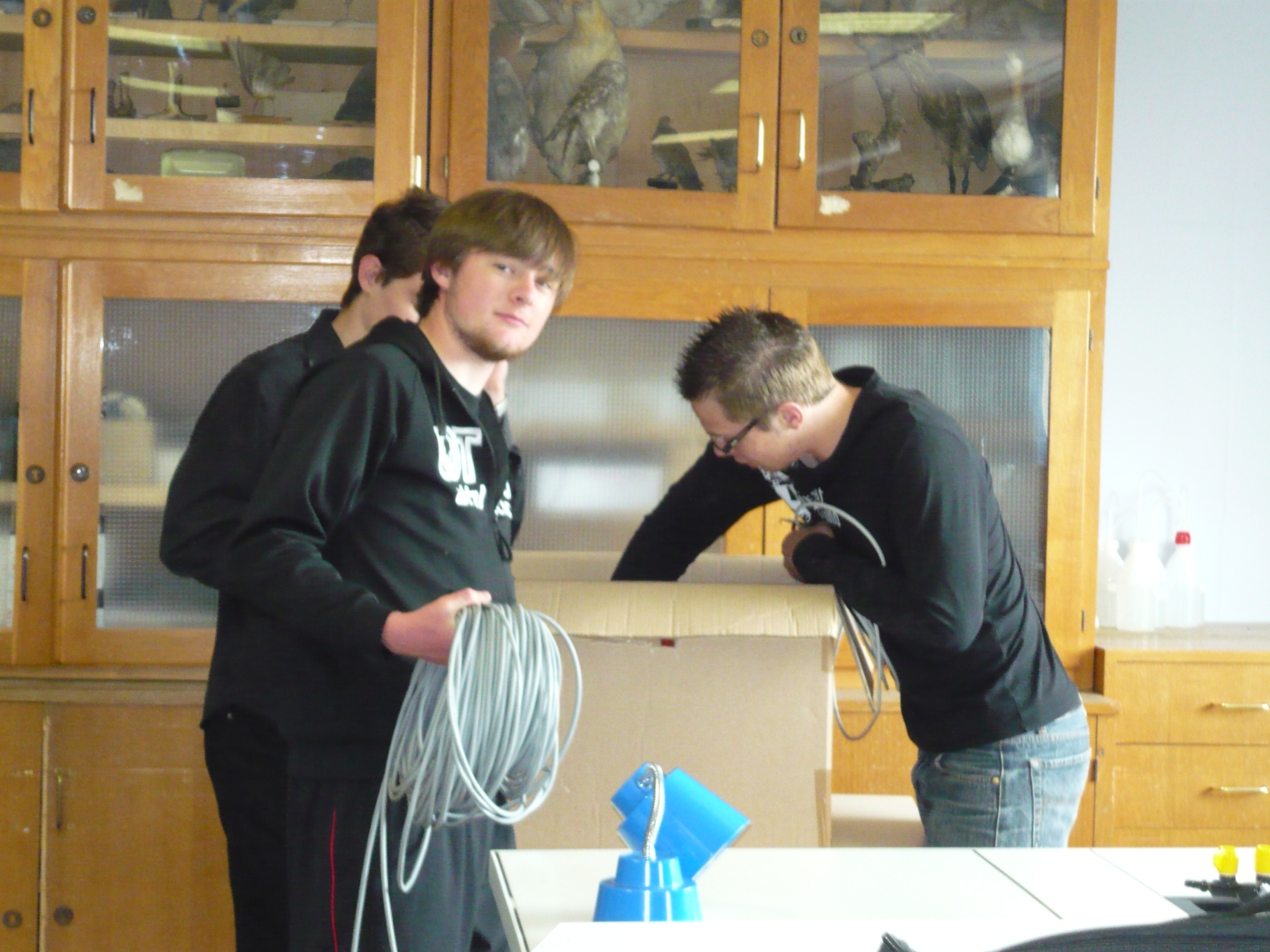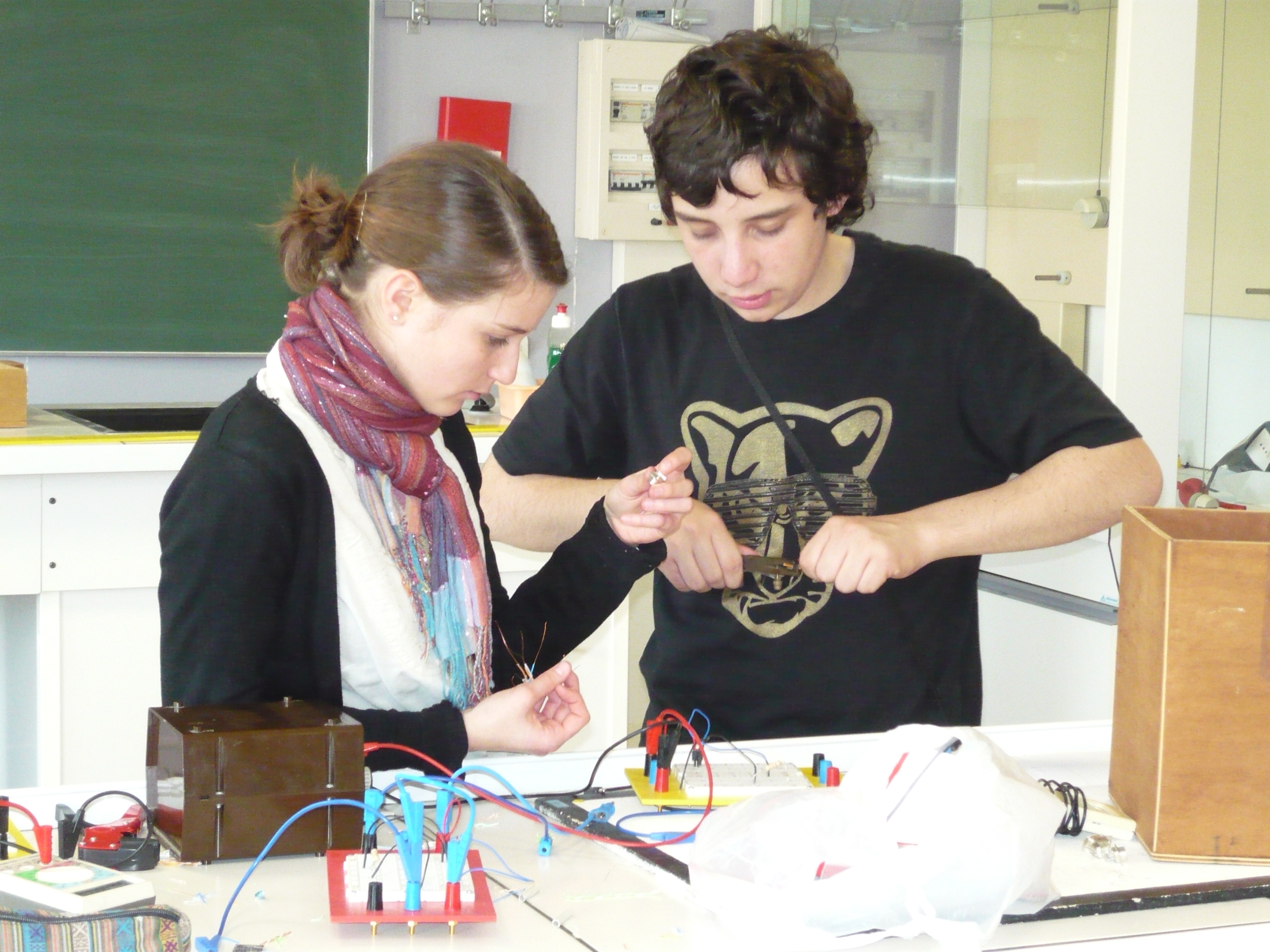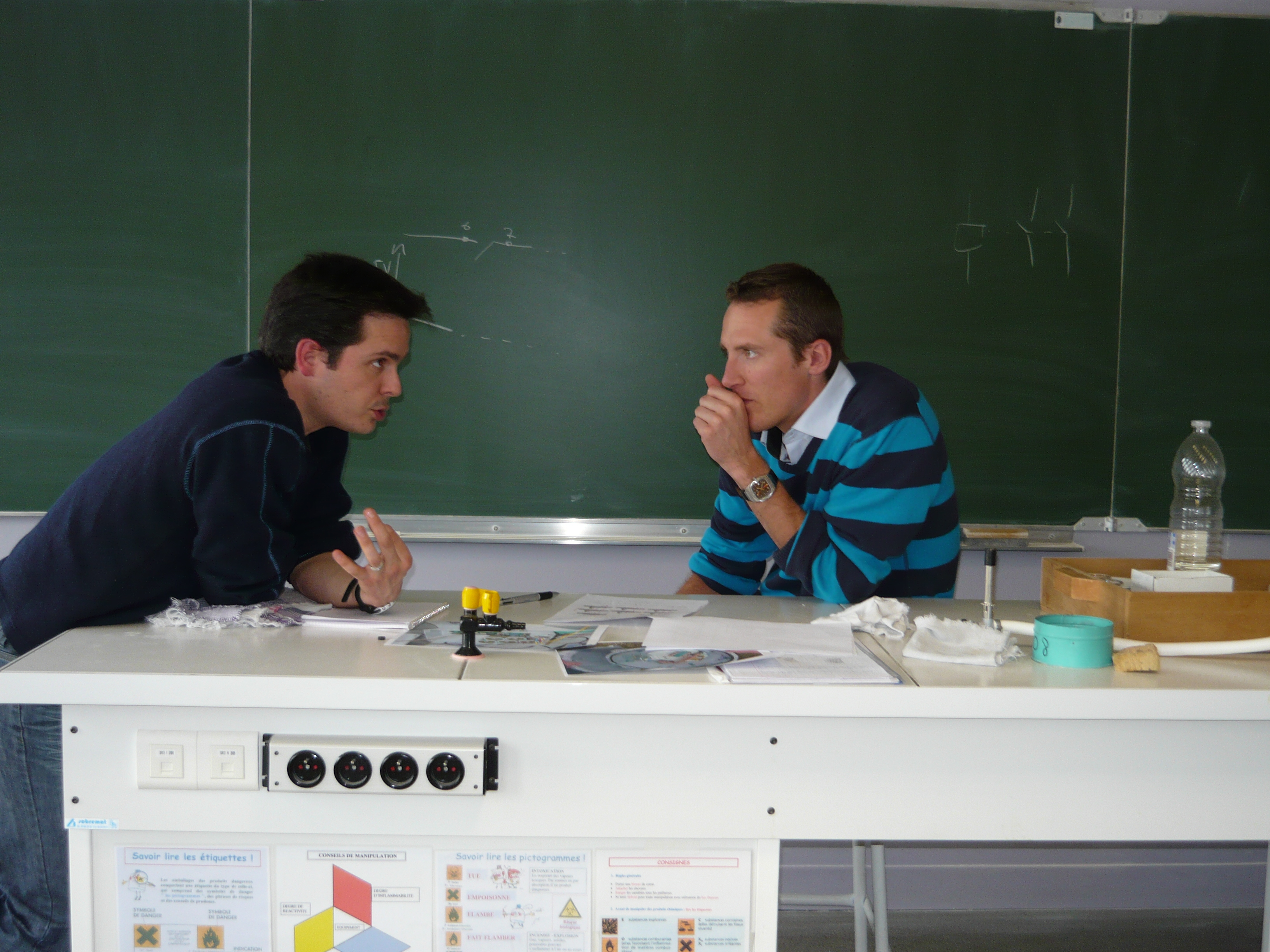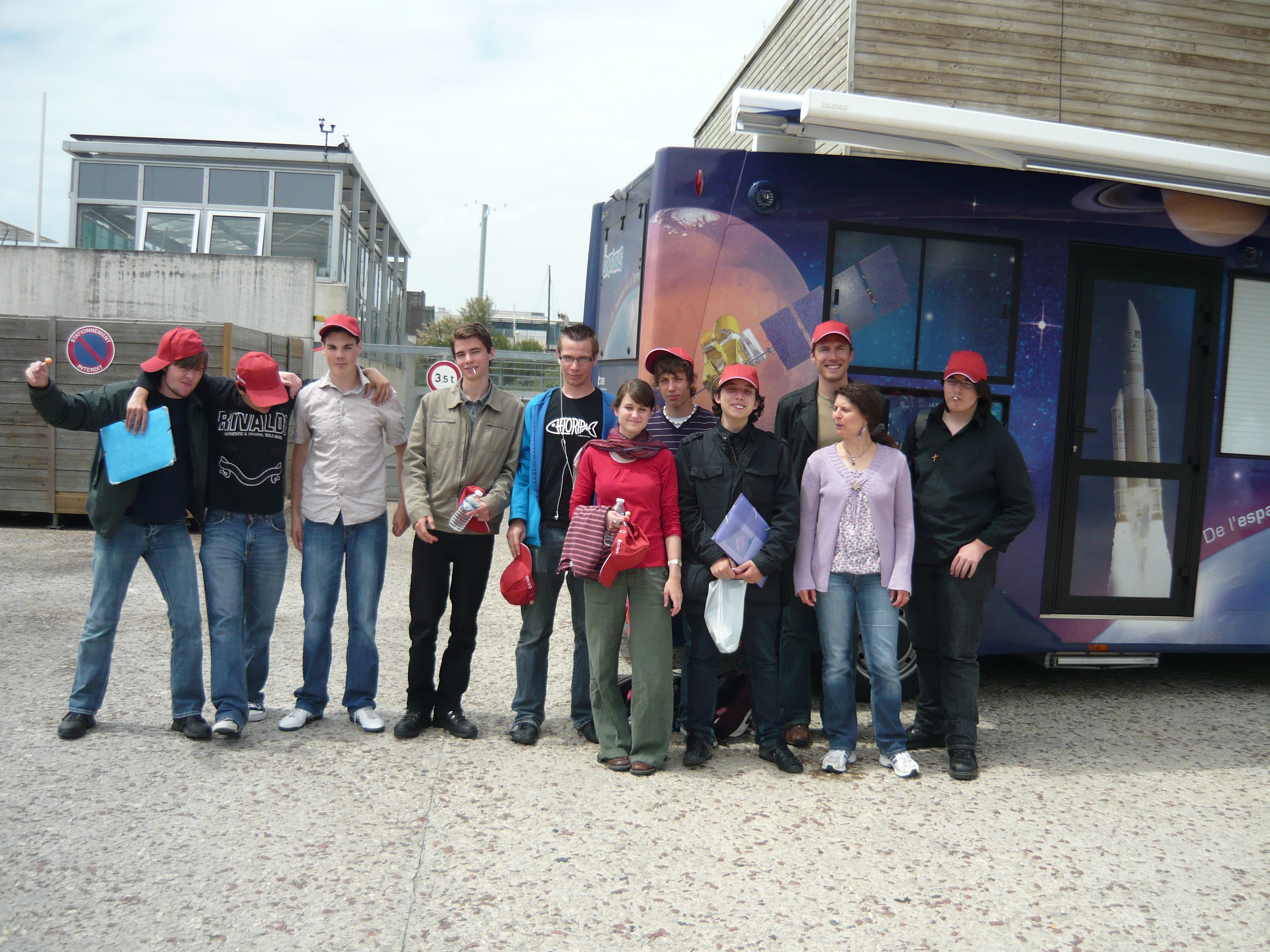|
The History project
|
1) The
beginnings of the science workshop to
high school
One day in September 2009, or perhaps a night,
some crazy high
school teachers Geoffroy Saint Hilaire d'Etampes launched into the diabolical scheme to
destroy the ocean
currents in the
hope of leading humanity to
its doom. To do
this they must have a local labor plentiful and cheap: the students.
Then they did spend in
the classrooms of the new creation of the scientific workshop "The Argonauts". Under cover of the science club,
they managed to recruit a dozen students all complicit in the horrible crime was
happening then ... They were originally thirteen to have joined the faculty in
their dark purpose, thirteen students (8 second,
2 1 st S
and one Tle S) and whose first name: Baptiste M, David R, Paul G, Quentin T, Romain D, Alexis A, Elodie G, G Benjamin, Stephen K, Eloise C. and L. Baptiste
The circle thus formed was
able to meet despite lacking common schedules and eventually find time for
these meetings. But it took time and the project could not fully start until October / November this year 2009.
The chaos resulting from the recent formation of
this organization was overwhelmed and we were able to
begin preparations for what would remain as the most Machiavellian adventure of the
story we know.

2) The first practical sessions
Experience required in
the preparation of our work was the following: Create a buoy /
sensor capable of studying ocean currents to
better understand how we
could destroy them. To do this, we
organized several sessions of
preparation consisted in acquiring a number of
theoretical knowledge and
practices relevant to
these currents, but also on concepts of electricity we would need during the construction of
the buoy. After five or six sessions TP physics, chemistry and SVT supervised by
teachers, followed a
period of reflection on the objectives that should accomplish our buoy.
This question leads us to define the problem that we serve as a
guide.

3) The choice of the problem
This
is the second quarter of 2009 at
several meetings that
we have made
a real general brainstorming on ocean currents, raising a number of
ideas all more interesting than others,
but sometimes unrealistic, and that we posed questions relating to their operation,
their effects and how they are set in
motion.
These retreats determined him including the choice of the
Gulf Stream model (the
latter being near a
stream and thus accessible) and
led to various proposals of
issues. Should they study the characteristics of it? Know
your role in determining climate, its influence on
them? What effects would result in a loss or attenuation of these currents? Many questions as it
sat in our group, and the objects of study were
not lacking on this subject. Movies like An
Inconvenient Truth Al Gore inspired and guided us in
our thinking.
Following this intense intellectual journey, we
finally ask the question of the origin of
the currents, which was evidently the basis of everything. In
doing so our problem is stated and eventually be
defined as follows: "What are
the parameters responsible for setting in
motion of surface currents like the
Gulf Stream? "
This problem,
combined with existing knowledge on ocean currents led us to consider the need to
equip the buoy sensors. But what settings should it be
measured? Who was
it necessary to know? How would we measure?
The problem was posed, he lacked longer than resolve.

4) The end of
the school year 2009/2010
After
that, we took the decision to begin work and we began the selection of sensors.
The
year progressed, it was imperative to establish the general pattern of the buoy
and begin construction of certain elements. Associations
and organizations that supported us since the beginning of our program, the most
important of these was the CNES, we did reach the outer shell of the buoy, the
first major equipment that we use. To
be entitled to receive the HERA case that would allow satellite transmission, we
should still wait until May 2010. Indeed,
in order to recognize our group, we participams a symposium organized by CNES
and IFREMER to the aquarium of La Rochelle with clusters attempting or having
previously attempted the adventure, and who came from all over France have
their projects and experiences.
We
were thus assessed by members of the CNES project organization and its
development. Our
project was finally qualified by CNES, we then gave the rest of the necessary
equipment: the HERA case, control unit for sending data via satellite.
This
exciting event also allowed us to revise some points relating to the function
and construction of the buoy and made us see new possibilities.
But
then we were almost at the end of the school year, and the labor of students
soon would continue development of the drifter. It
was therefore decided to postpone the next year the stages of building the buoy,
the year 2009/2010 has contributed in particular to define the role of the
latter to accumulate useful knowledge about the medium studied and train
students participating in this
project.
The
first year of the scientific workshop therefore stopped under these conditions,
but then nobody had forgotten the dark thoughts that had been the source of its
creation ...

5) The September 2010
The coming school year 2010/2011, students were
preparing to resume their place in the organization. But
many of them fail to call, victims of
a next grade or simply by remorse at
the idea of destroying humanity. Our group was now reduced to five students, including two
new recruits (two Grade 1 S).
Preliminary research on the development of
the buoy being closed since late last
year, he only
wanted to test sensors under conditions and begin assembly of the buoy. Our buoy was also named after Poseidon, god of
the seas and oceans.
In
the first weeks after some adjustments, we
realized models for sensors and buoys in the optical test solutions previously learned. Some of
the ideas that we had were eliminated. This was the
case for example for one
to fill with
foam inside the buoy to prevent leakage: failure of the
test on a buoy-model.
|
|
|